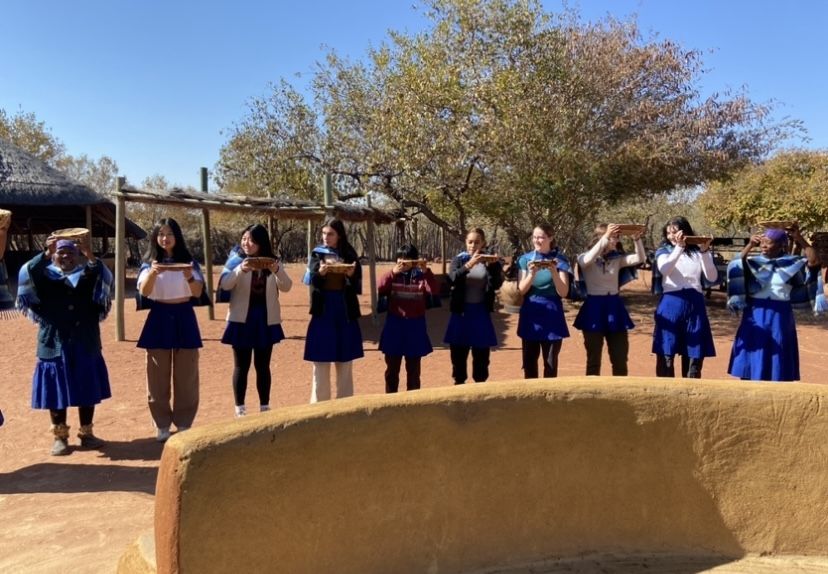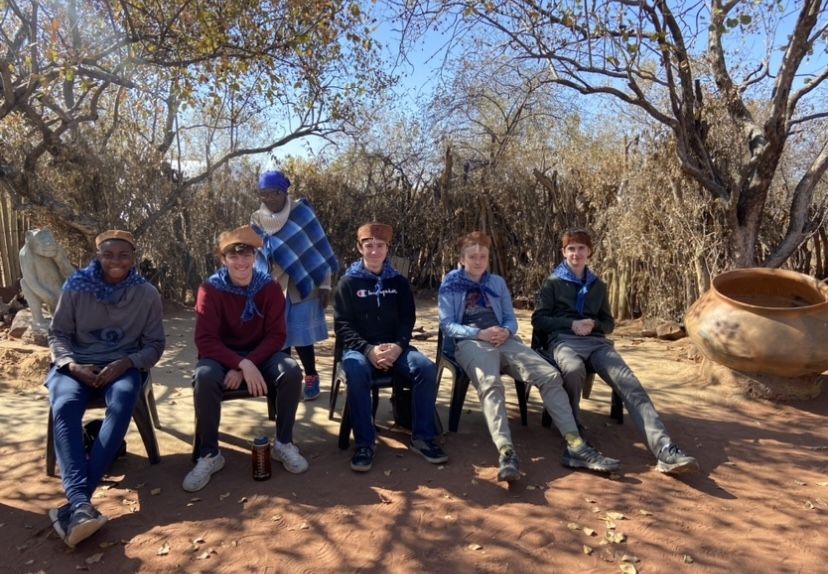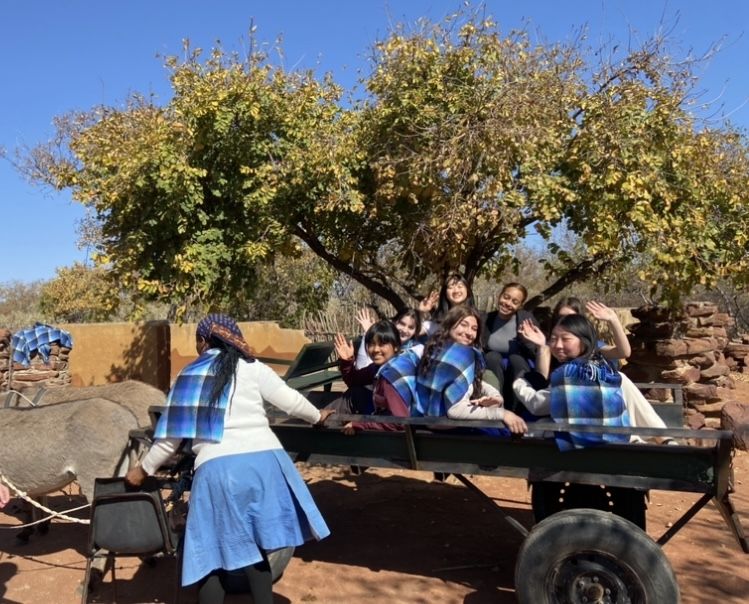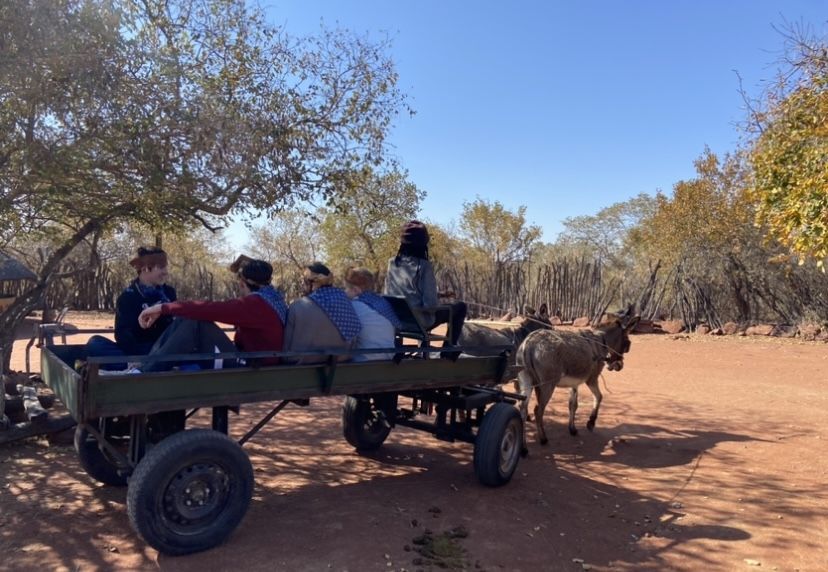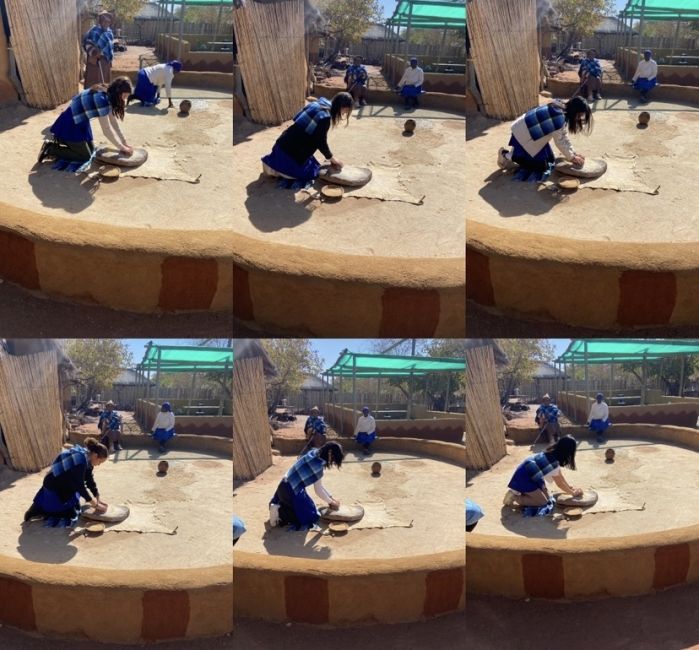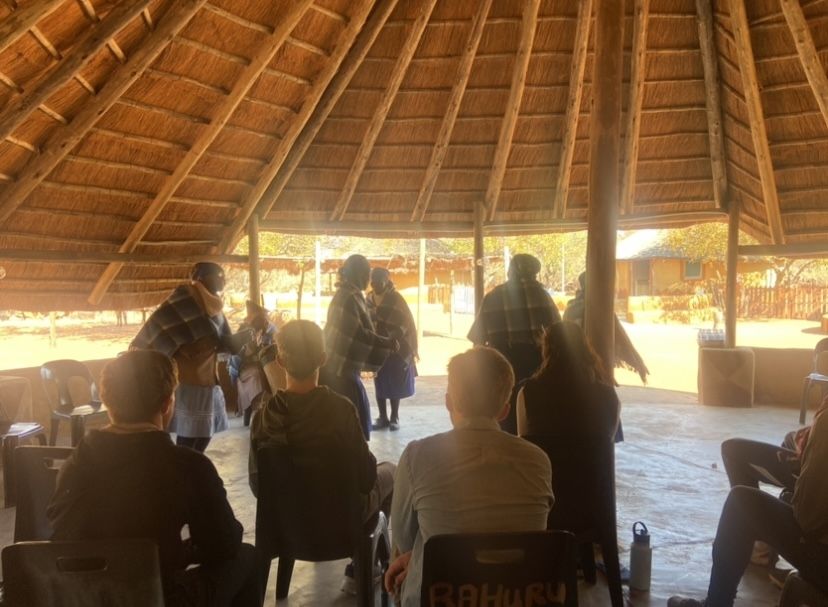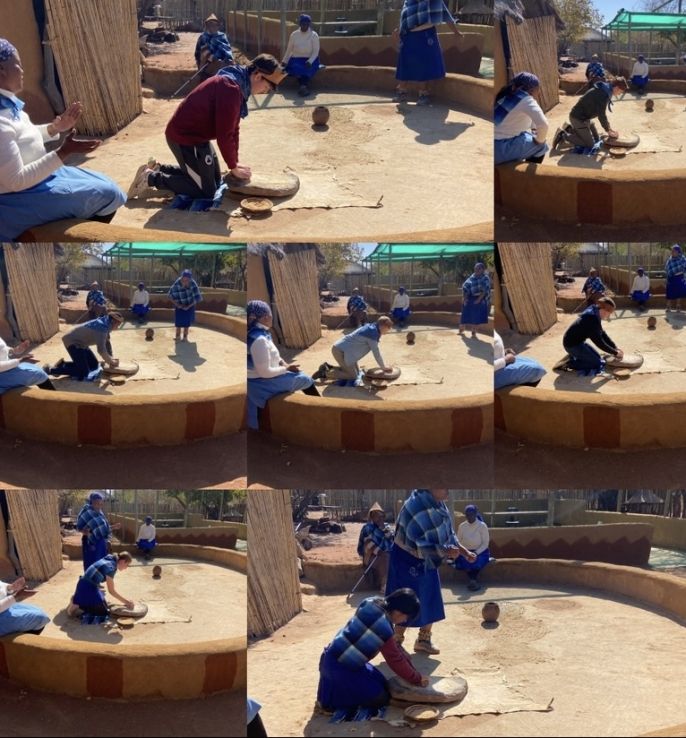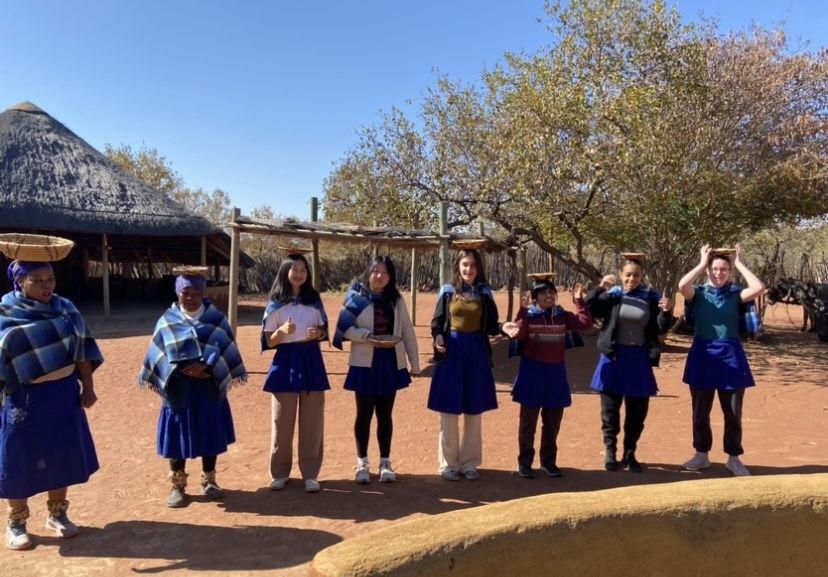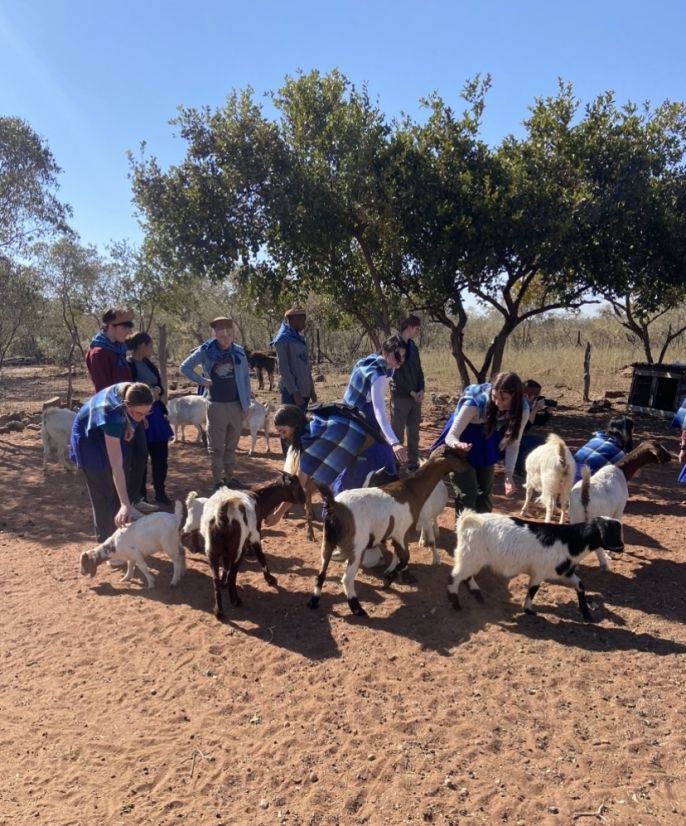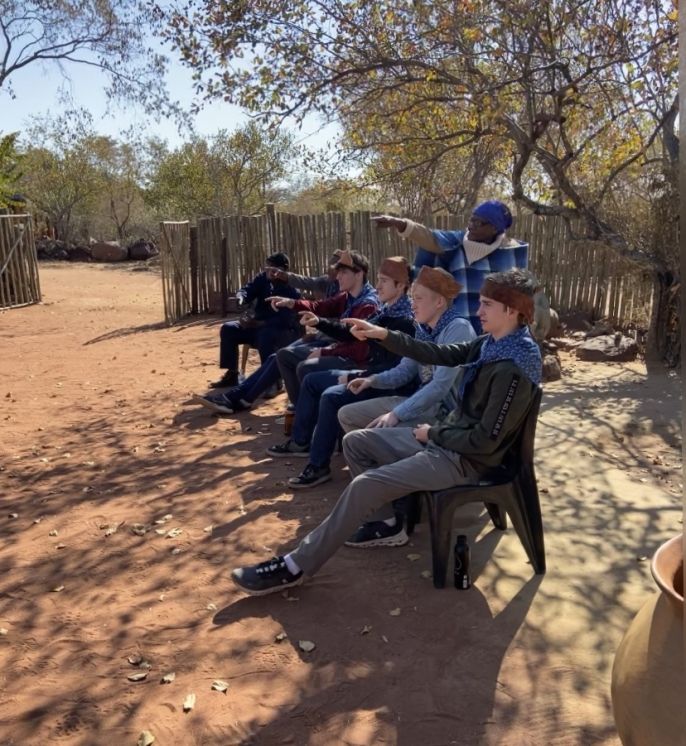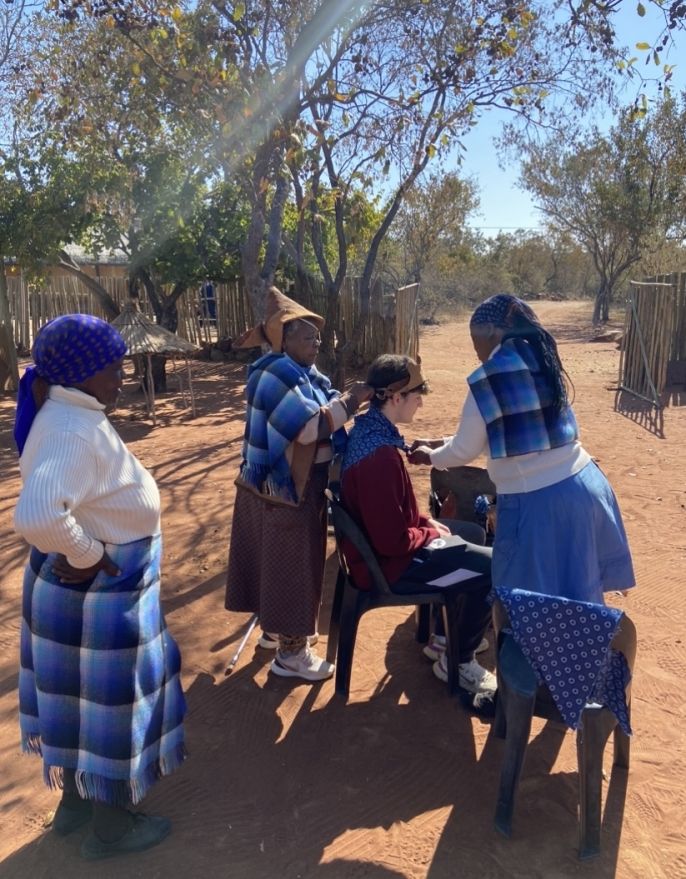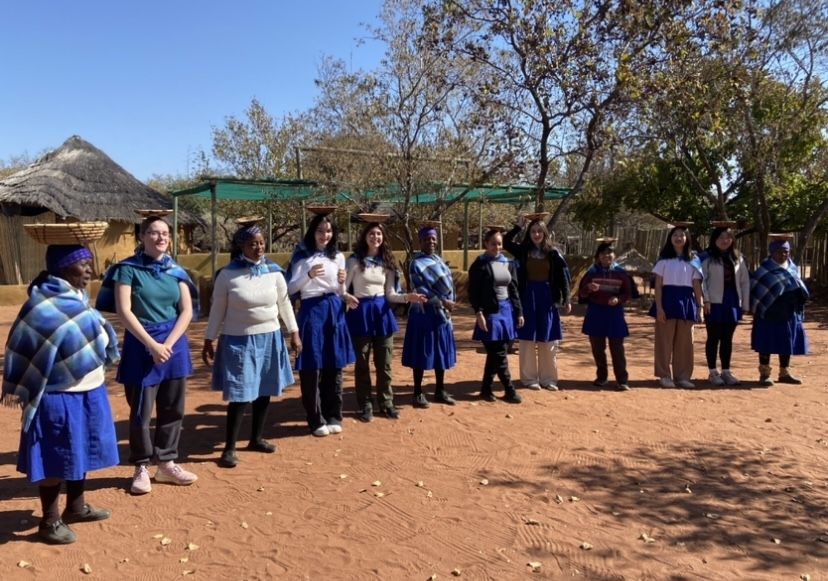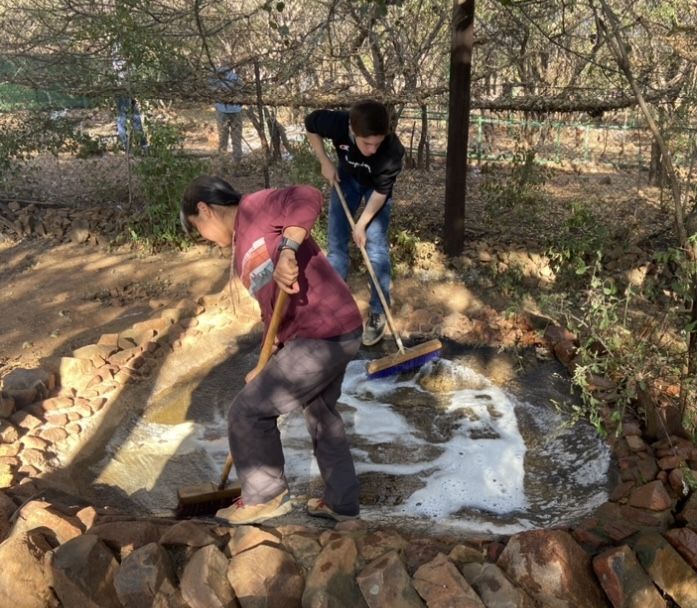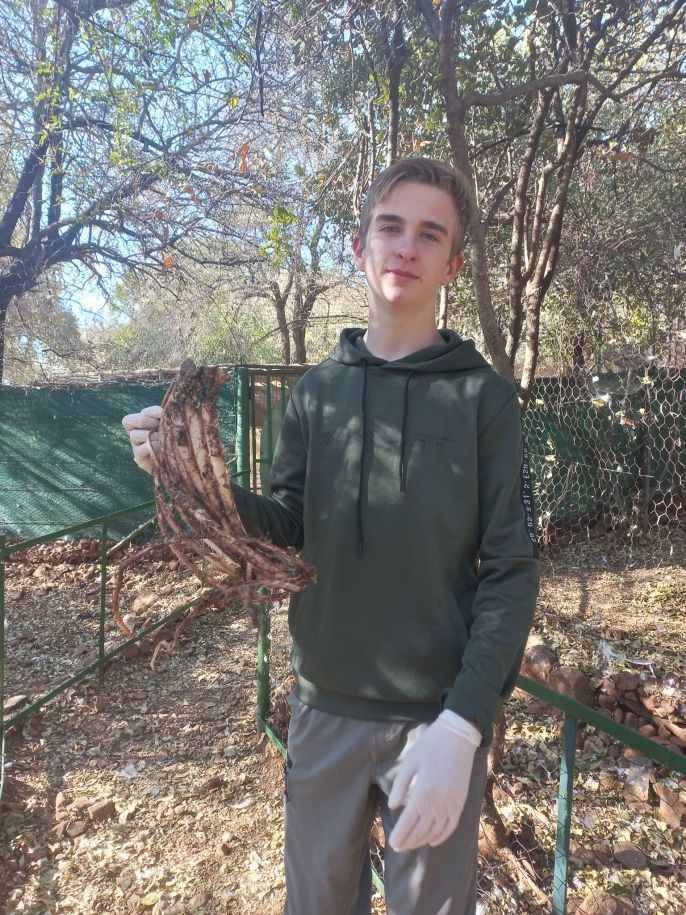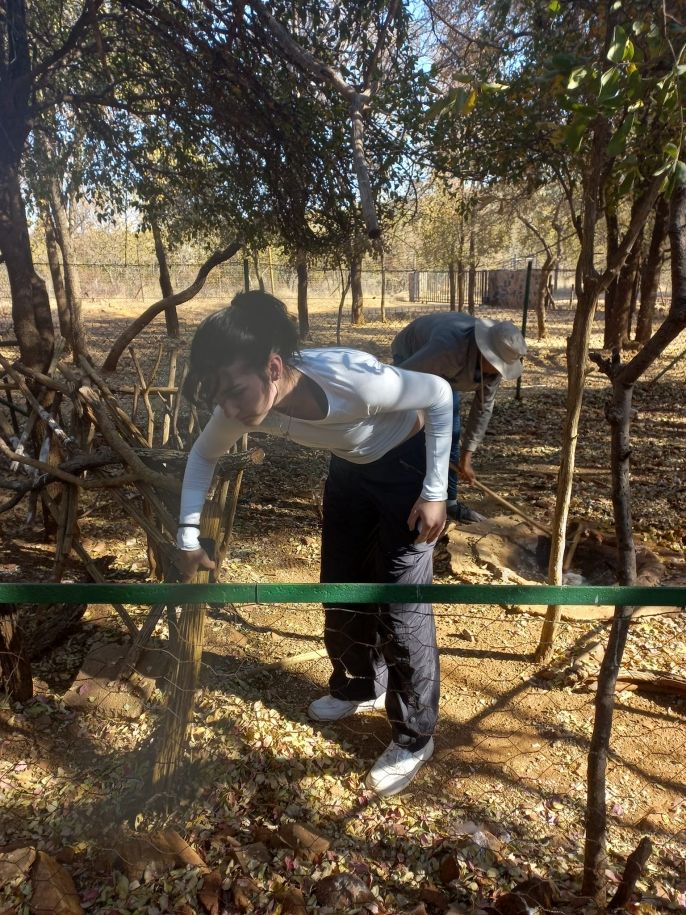Bahurutshe Cultural Village and Animal Care
Happy Tuesday! I think the phrase of the day is “new experiences.” While all that we have done so far have been phenomenal activities for the Global Navigators to learn and grow, our first today activity was geared to throw them into the deep end of culture. Let me explain: Bahurutshe Cultural Village is focused on giving students a meaningful time, and one where they can discover the culture of Botswana. Students learned about the significance of a Kgotla in the tribes. It is similar to a court, where villagers can bring their problems or concerns before the chief. All problems brought forward are taken seriously, and everyone is shown respect. Kgotlas tend to be built at the focal point of the village. In the past, chiefs were always male, but at Bahurutshe, there was a woman who was chief. During our time at the Cultural Village, we were told about some of the changes that Botswana has seen in the last twenty years, including different family dynamics. The navigators were able to have a big lunch, consisting of seswaa, palache, and gravy.
We then came back to Mokolodi to learn about animal care here at the reserve. Mokolodi helps sick and injured animals, they aim to release them, but some will stay permanently. Members of the public can find these animals and contact Mokolodi to help. In addition to helping the animals, Mokolodi can use these animals to educate people on the species and their value in conservation. The park has a martial eagle and both white-back and cape vultures. Today, the Navigators went into the enclosures to clean and replace the waterThis large scavenger is vital to its ecosystem. It only feeds on carrion—the carcasses of dead animals—and, by eating flesh before it rots, the vulture prevents dangerous bacteria and viruses from growing on decomposing carcasses. Its stomach acids also neutralize pathogens, which limits the risk of spreading diseases to humans and other animals. By picking carcasses clean so quickly, vultures also suppress insect populations that are linked with eye diseases for these beautiful birds. Previously, we learned that white-backed vultures are endangered and Cape are vulnerable. Poachers will kill the vultures because they draw attention to kills and they are also commonly poisoned. We learned about the importance of the species, one important job they assist in is helping prevent dangerous bacteria and viruses from growing on carcasses, as they only eat carrion. Today, we did our part to help the ones at the reserve.
Since we had a busy day, Navigators were then given some time to rest, relax, and work on projects. Tomorrow promises to be another busy day of visiting three NGOs…stay tuned to find out more!
Related Posts
Final Reflections and Advice for Future Students
It is our last day here in Botswana and before all the tears began, we asked students to share some of their final reflections and thoughts. Over the past three... keep reading
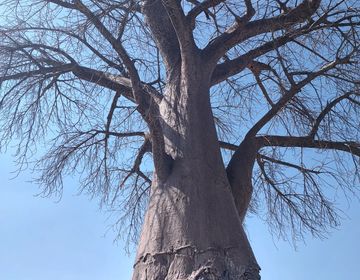
A Baobab that rose from the Okavango Delta
There are some things that are iconic to the continent of Africa- the big five, delicious food and the majestic Baobab tree. The Baobab is known as the tree of... keep reading
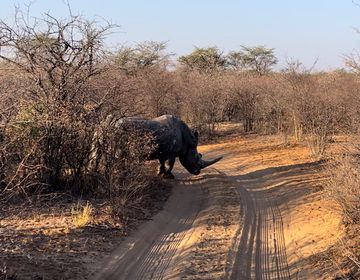
Khama Rhino Sanctuary
The first stop on our journey to the northern part of Botswana was the Khama Rhino Sanctuary; established in 1992, the sanctuary is a “community based wildlife project” aimed at... keep reading
